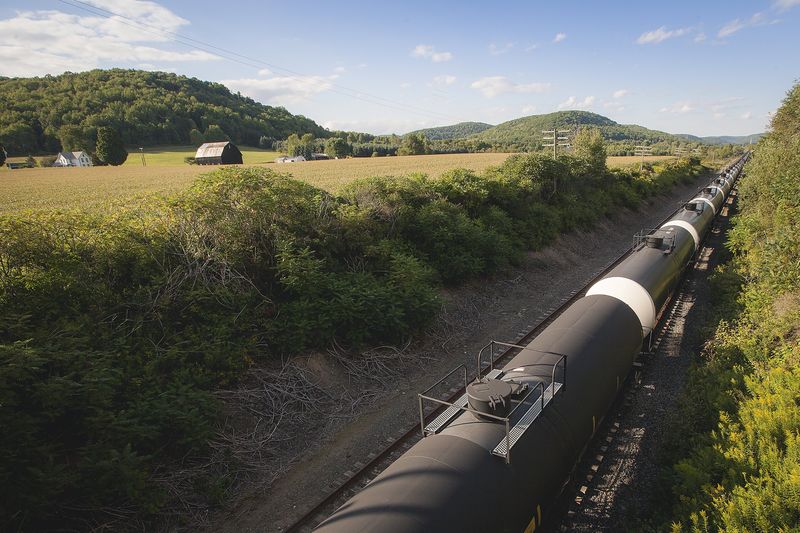By Dave Sherwood
PORTLAND, Maine, Dec 2 (Reuters) - Maine will no longer
disclose to the public any details about shipments of crude oil
by rail through the state, an official said on Wednesday, a move
that has angered activists who say the information is critical
to public safety.
The state's Department of Environmental Protection on
Wednesday declined a reporter's request for monthly volumes of
crude oil shipped by rail, citing a June law that prohibits
emergency responders from disclosing certain details about rail
shipments of hazardous materials through the state.
"When people are aware of what's coming through their
community, they pay attention," said Bob Klotz, a spokesman for
350 Maine, an activist group that has protested oil-by-rail
cargoes in the state. "To take that information away is very
concerning."
The U.S. and Canada are grappling with environmental and
safety risks posed by a surge in oil-by-rail cargoes, following
several fiery derailments of trains carrying Bakken crude oil in
North America.
A U.S. Department of Transportation Executive Order in 2014
required railroads to inform emergency responders about large
cargoes of Bakken oil passing through their states.
But many railroad companies, citing security concerns along
their tracks, have lobbied to keep that information from the
public.
A spokesman for the Association of American Railroads, which
represents freight railroad operators, declined to comment on
the Maine law, but said the group supports the federal order
requiring cargoes be disclosed to emergency responders.
Lawmakers passed the Maine bill, which would prohibit the
public from accessing the same information as emergency
responders, over the objections of Governor Paul LePage, a
Republican, who vetoed the legislation in June.
"I am not at all comfortable shielding this information from
the Maine citizens that may be placed in harm's way," LePage
wrote in his message on the bill, one of about 100 he vetoed
this year.
A spokesman for Maine's Department of Environmental
Protection said the agency was still "seeking guidance" on how
to implement the law.
Only one railroad company, Pan Am Railways, based in North
Billerica, Massachusetts, has continued to ship crude through
Maine after an oil train exploded in neighboring Quebec in June
2013, killing 47 people.
Pan Am did not reply to requests for comment.
Before that crash, Maine had been among the largest
oil-exporting U.S. states, transshipping millions of barrels of
crude by rail from North American oilfields mainly to Irving
Oil's refinery in Saint John, New Brunswick, which is Canada's
largest.
(Editing by Scott Malone and G Crosse)
